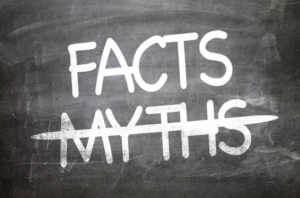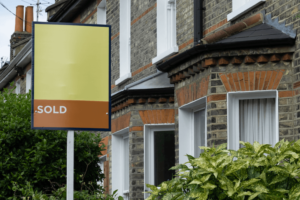When you’re going through a divorce, often the last thing you want to think about is what’s going to happen to your home.
The idea of either being out of your home or having to manage the entire mortgage payment on your own can be terrifying: do you want to move out and leave the property for your other half?

A large majority of couples who decide to get a divorce (and the number is rising) prefer to sell their marital property and ‘move on’. This is understandable as not only would the mortgage payment be too much for one person, but the property will also have memories tied up in it.
However, selling up and moving on isn’t an option for every couple – especially where there are children involved. That’s because the offspring may be settled at school and have friends they don’t want to leave behind. And having the children experience their own trauma is something you feel you maybe can’t cope with right now.

So, what are you going to do? Well, if you feel that selling your house is the best option for you then here are some factual questions we’ve attempted to answer for you below. In the meantime, if you feel it’s all getting too much and you would like some professional support while you navigate this particular minefield, then do get in touch with our Helping Hands Service here at Faster Property Solutions. Our experts will always listen and can provide emotional support in dealing with a divorce and selling your house. That way you will feel calmer and more organised.
Divorce and your house rights
You are entitled to half of the value of the property in a divorce – unless you’ve agreed otherwise with your respective solicitors. This means settling on a price for the property and, once it is sold, dividing the money between you. Usually, you would price the property at market value. If you find choosing a price is causing more rows than solving the situation then get a local surveyor to price the property and call us to see if we can help with selling your property during a divorce.
Divorce and selling house
It could be that you decide to sell the house at a later stage and that you’d rather get the divorce over with first. This is perfectly understandable and allows you to take time to decide your options.
It also means that you can do it when it won’t have as big of an impact on your children e.g. when they go off to university, leave Primary School, etc.
And anyway, you may have changed your mind about selling at this stage and opt to buy your partner out instead.
Divorce: ‘house is not in my name’
Regardless of whose name the house is in, you can still change the name on the mortgage to your own. You’ll have to chat with the mortgage lender – or find another – and explain the situation. Lenders can usually be quite sympathetic in this situation, and chances are you will have built up quite a bit of equity in the property anyway.

And, even if you haven’t, many mortgage lenders are happy to go ahead and put the property under one name if you choose a guarantor mortgage. This is when someone else – usually a family member – agrees to step in and settle the mortgage payments if you can’t. Their property or savings are used as security i.e. ‘the guarantee.’

Another reason for buying out your partner could be that it gives you more financial independence, which means that you’re not ‘financially’ attached to him or her anymore. Not only does this help financially, but it can often prove to be an emotional plus as well.
Then again, it could be that you are getting the house in a divorce in lieu of other payments from your partner. Every divorce is different since no two relationships are exactly the same. It could be, for instance, that you and your partner are amicable about the divorce and don’t even want to bring in solicitors. But then, that’s usually dependent on the reasons for the divorce in the first place.
Divorce and downsizing
But what if, after making all your calculations, you can’t afford to buy your partner out? You will have to sell and move to somewhere smaller instead. This is when you may need to sell your house quickly for cash. It’s often not a bad idea – especially if your divorce is an acrimonious one, since it means you can move on faster and get started on the next chapter of your life.
When looking for a new property though, remember that you will have to calculate the cost of solicitor’s fees, a surveyor, and marketing costs. Then, once you’ve found it, there will be Stamp Duty to pay, as well as the cost of hiring a removals firm and possibly paying for decorating too.

House repossession
It could be that you agreed to take on your partner’s share of the mortgage to allow you to keep your home. Many repossessions in the UK begin this way, with one partner intent on not losing the house and signing up to bigger mortgage payments. They discover later down the line that the additional amount of money was just too much. The result is they find themselves owing money and facing the unpleasant dilemma of house repossession. If that’s you, then take a look at our guide on what you can do when facing house repossession. It doesn’t mean you will definitely lose your home.
This can be serious since failing to make mortgage payments can affect your ability in the future to get mortgage finance for another property. It can also adversely affect your credit score.
Get in touch
Here at Faster Property Solutions we have a number of options to help you with selling your house when going through a divorce. Get in touch to talk with one of our sympathetic team members who will take the time to provide emotional support in dealing with a divorce and selling your house.







